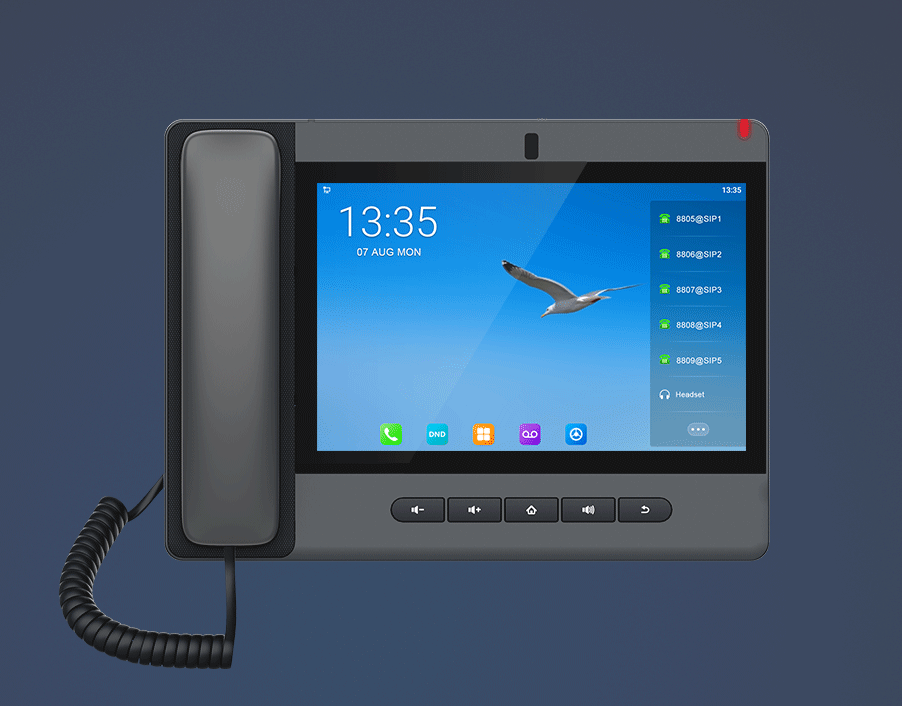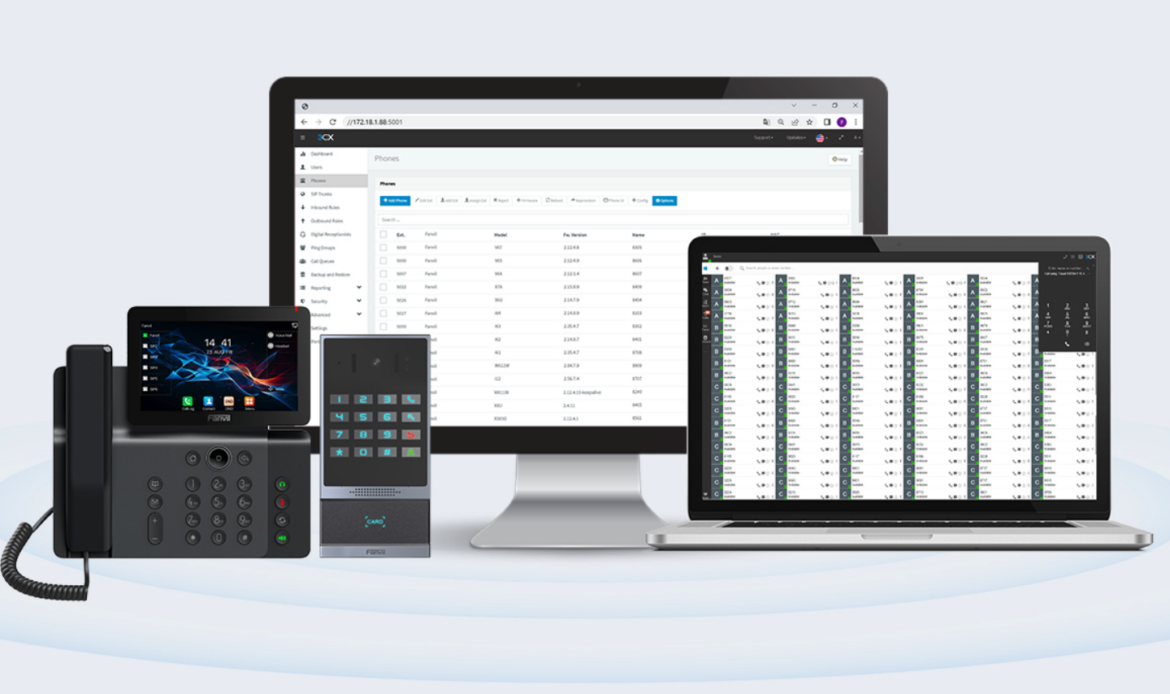
VoIP
Welcome to Afritic Group's VoIP Services
we redefine communication solutions for your business. Our Voice over Internet Protocol (VoIP) services bring unparalleled clarity, flexibility, and efficiency to your communication infrastructure.
- Unlimited calls
- One phone number for calling, team messaging, and video meetings
Add Your Heading Text Here
What is a VoIP phone?
A VoIP phone is a kind of telephone that uses IP technology to transmit calls. It can come either in the form of specialized digital hardware or a program (running on a computer or mobile device) that performs the same functions.
Fitted with a microphone and receiver, a VoIP telephone takes the sound you generate and converts it into packets of data. It then sends it over the network and out through the internet. The phone on the other end then decompresses the data and plays it back for the other person to hear.
Add Your Heading Text Here

SERVICES
Services
We Serve the Best Work
Benefits of Afritic Group's VoIP phone system
Lower costs
Unlike legacy PBX, VoIP phone systems only require a strong internet connection. This means significant savings on infrastructure and hardware. VoIP also allows long-distance and international calls via the internet at no added cost
Easy and simple setup
There’s no need to wait for tedious installations. We understand the value of time in business here at Afritic Group. You can count on us to have your virtual phone service up and running in no time.
Additional features
VoIP is not just about making calls; it also presents a chance to utilize a unified communications solution that includes an array of extra features, such as call forwarding, call routing, call recording, SMS messaging, voicemail, video chats, and more.
Mobility and flexibility
VoIP does not tie you to a physical workstation, giving your business the means to meet the rising demand for remote work. Employees can work from anywhere, anytime, and from any device.
Unparalleled security
Afritic Group's VoIP services are encrypted with secure voice between endpoints on the network. This translates to VoIP phone calls that are protected from interruption and threats like power outages, inclement weather, malicious attacks, etc.
Scalability
Traditional business phones are static, but VoIP evolves with you. Whether you have plans to expand to multiple locations or add international people to your team, you can scale easily with a VoIP business phone system like Afritic Group's.
Faq
Technologies

about us

Process
How do VoIP phones work?
Voice over IP technology involves a set of different protocols working together to replicate telephony functions. Each protocol has a different function, but all work simultaneously in real time.
- initiates the call (when you dial a phone number),
- establishes a connection (when the person being called answers the phone), and
- terminates the connection (when either of the participants drops the call).
What are the different transport protocols for VoIP?
Transmission Control Protocol (TCP) and User Datagram Protocol (UDP) are the two primary types of transport protocols used for data transmission across the internet.Data travels over the internet in packets, which are transmitted using the IP network. Imagine sending a letter: you need an envelope to make sure it is delivered to its destination untouched and without delay. TCP and UDP are two kinds of envelopes you can use, and they both carry digital signals in the form of data packets. How does one differ from the other?
VoIP hardware to maximize your internet telephone usage
As businesses all over the world continue to embrace cloud communications, you should find ways to enhance your internet phone experience. Here are some hardware that you can utilize to make the most out of VoIP technology:





